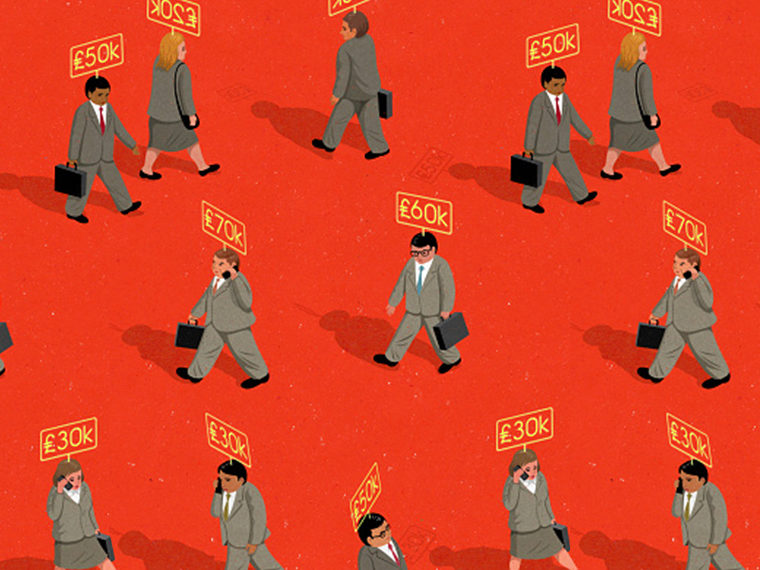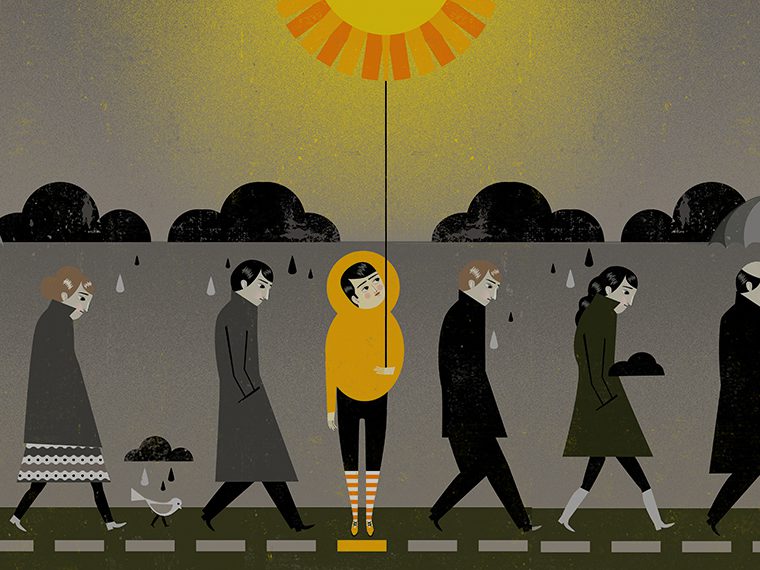Which one walks out happier?
Time may indeed be money, but figuring out what an hour of volunteering might theoretically cost you if your annual salary is, say, $130,000, could be more math that you’re willing to bother with. ($67.71, based on working 1,920 hours in a year.)
If you earn the same amount, but are explicitly paid by the hour, however, it’s second nature to think of your time in $67.71 increments. That handy factoid can serve as a powerful motivator — or de-motivator — to engage in activities outside work, depending on whether they’re seen as economically rewarding or costly.
In research to be published in the Journal of Applied Social Psychology, UCLA Anderson’s Sanford DeVoe and University of Virginia’s Jieun Pai provide evidence that, for higher-wage workers paid by the hour, giving up time to volunteer might be less enjoyable than for similarly paid workers on a salary or for hourly workers with low pay.
Opt In to the Review Monthly Email Update.
Pai, a recent UCLA Anderson Ph.D., DeVoe and Stanford’s Jeffrey Pfeffer did some similar work on after-hours networking — the career enhancing schmoozing one does even though it eats into personal time — and found people paid hourly were more inclined to engage, perhaps because they could easily value the time invested against an expected gain.
Roughly 1 in 4 Americans donates their time, a decline from a near-30% volunteer rate in the aftermath of the Sept. 11, 2001, terrorist attacks. Which means that 75% of us are missing out on an opportunity to not just help others but also help ourselves in the process. Research published nearly a decade ago found that people who volunteer derive greater happiness in their lives and feel a warmer glow of connectedness to their communities.
In 2007 research, DeVoe and Pfeffer established that those who are paid hourly, or whose livelihood relies on billable hours, are less likely to donate their time. The research, in the Academy of Management Journal, mined a national time-use survey and found that workers paid by the hour spent, on average, 36% less time volunteering than people not on the clock.
Time Is Money for the Well-Off Even When Volunteering
DeVoe and Pai, in the latest paper, pore over data from the government’s American Time Use Survey; in 2010, 2012 and 2013, the ongoing data project drilled down into participants’ self-reported happiness alongside their diary-entry account of how they spent their time.
Among more than 400 participants who reported volunteering, higher income earners paid hourly reported less happiness from it.
DeVoe and Pai ran a field experiment to learn more about the relationship between higher earners on the clock and their enjoyment of volunteering.
They piggybacked on a 36-hour charity run sponsored by UCLA Anderson MBA students to benefit a veterans’ charity.
Thirty minutes before the race began, half of the study participants were told what their likely hourly pay would be once they entered the work world as a newly minted MBA; the other half were told what their annual salary might be.
A day after the run, all participants were asked, on a scale of 1 to 7, how happy they were during the run and how much they enjoyed the run.
Runners with future hourly earnings dancing in their heads during the race reported a lower average level of happiness (5.87) compared with those who considered their expected annual pay (6.5).
That’s most consequential for those who benefit from the work of volunteers. And in a world where billable hours is no longer just a lawyer construct (see: independent consultants, financial planners, etc.) and on-the-clock gig work is on the rise, it’s possible a growing number of people might derive less enjoyment from volunteering.
“When the opportunity costs of time are high, these findings indicate it is especially hard to enjoy volunteering,” DeVoe and Pai write. “A decreased experience of happiness engaging in volunteering may portend diminished likelihood of engaging subsequent volunteer activities further exacerbating participation in activities that provide meaning and social connection.”
Featured Faculty
-
Sanford E. DeVoe
Professor of Management and Organizations, Area Chair
About the Research
Devoe, S.E, Pai, J. (in press). When does being paid an hourly wage make it difficult to be a happy volunteer? Journal of Applied Social Psychology. https://doi.org/10.1111/jasp.12784.






